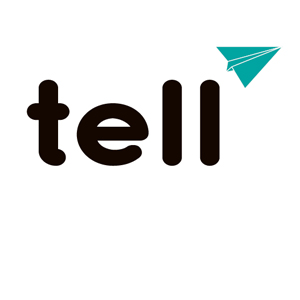The family is a complex system, where each member’s personality, desires and life experience interact with those of the other members. Further, every family has its own characteristics.
Indeed, a family can be one of the most immediate and powerful environmental influences on a child.
Practically every theory of human growth and psychotherapy acknowledges the primary importance for a child of the family, or other early environmental influences.
Thus, children exposed to stress at an early age have been shown to become more prone to depression and anxiety than those who have not.
Meanwhile, an enriched environment during a child’s early years has been associated with the development of positive thinking and good health.
If problems are detected and worked on early, a child’s chance of living a healthy, productive life are increased.
That is the thinking behind the TELL Children & Families Program. Established in 1998, the initiative sits under the umbrella of TELL Counseling, which offers comprehensive and multi-disciplinary mental health services for the international community in Japan.
Our children and families team provides a wide range of confidential and evidence-based counselling and psychological testing services for children and teenagers with learning, emotional and/or behavioural issues.
We also cooperate with TELL Lifeline, raising awareness concerning mental health for the purpose of early detection and prevention.
Counselling
The areas of expertise of TELL Children & Families therapists include anxiety, mood disorders, behaviour and adjustment issues.
Recently, the team has been receiving an increasing number of referrals from families and schools regarding adolescents with eating disorders, drug addiction issues, school-related stress and an unwillingness to attend school.
The TELL Eating Disorder Treatment Program, in particular, has become one of the most solid and reliable resources in the international community for treating eating disorders in an outpatient setting.
It offers the most up-to-date and evidence-based treatments in multiple languages.
The team has also seen a growing number of children with behavioural issues who struggle at their preschool or elementary school.
The clinicians work closely with the parents and schools to provide the most effective treatments for those youngsters.
Through a multi-disciplinary approach by a highly qualified team, TELL Children & Families strives to meet the diverse needs of international families in Japan.
Psychological testing
TELL Children & Families assessment team members try to understand why a child is struggling. For example, not all cases of poor attention in the classroom are due to a lack of motivation or attention deficit hyperactivity disorder (ADHD).
There are many considerations, including issues related to sensory or language processing, reasoning or emotions. Only by understanding the whole situation can a school adjust the instruction and provide education for the child concerned.
We frequently assess students who struggle to read, despite being very articulate and showing fine reasoning skills. A diagnostic label such as dyslexia does not explain the underlying processing issue that causes the problem.
Our assessment tools enable us to develop a profile of a child’s learning strengths and weaknesses. This enables us to come up with recommendations for both school and parents that will set the child up for success.
Outreach
As a measure of support for the community, and for early detection and prevention, TELL also provides a number of programmes.
-
- Child protection
TELL provides child protection workshops and consultation sessions for international schools and the community, designed to foster understanding of child abuse and how to navigate the Japanese child protection system.
-
- Exceptional parenting
An informal support group helps parents guide their children with diverse needs through the developmental years. Participants learn from guest speakers, networking and through sharing information.
Last year, we provided workshops on various topics including ADHD, the evolution of consciousness, bilingual language development, applied behaviour analysis, grief and loss in children, lesbian, gay, bisexual, transgendered and questioning, and literacy skills.
-
- TELL Lifeline—school awareness
We provide interactive workshops for teenagers at school to explain that the TELL Lifeline is a confidential, safe and non-judgmental service.
Our workshops aim to prevent harmful behaviour in adolescents, including suicide. Last year, TELL worked with over 1,000 junior and senior high school students at international schools.





